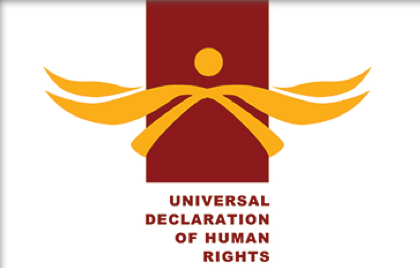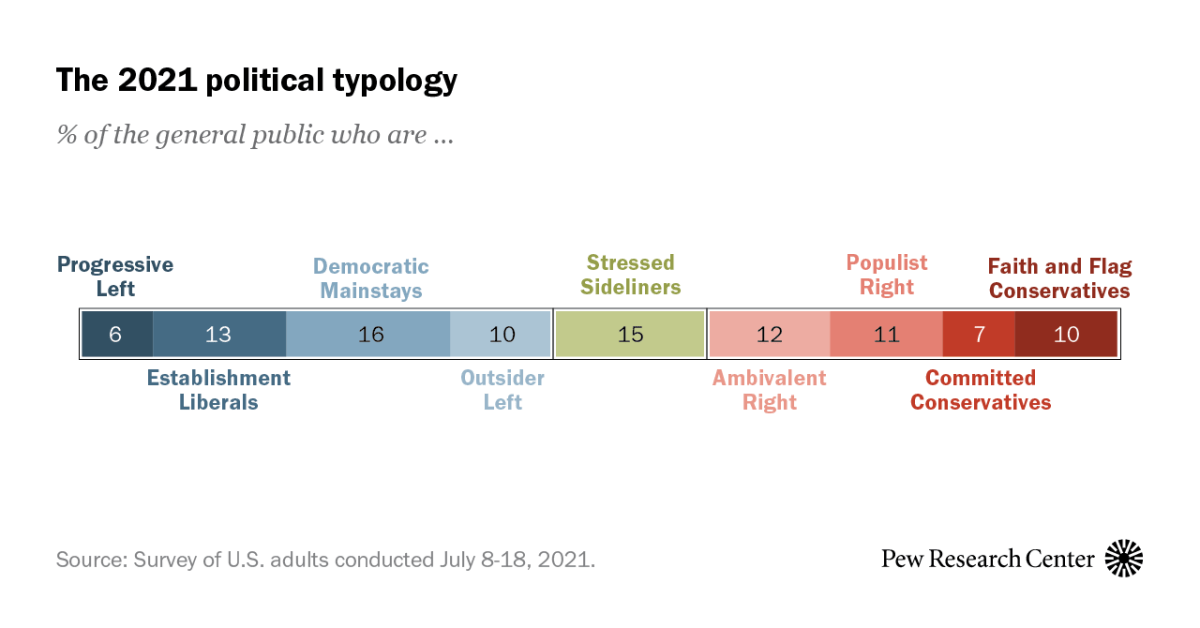This is the Center’s eighth political typology since 1987, but it differs from earlier such studies in several important ways. It is the first typology conducted on Pew Research Center’s nationally representative American Trends Panel, which provides the benefit of a large sample size and the ability to include a wealth of other political data for the analysis, including the Center’s validated voter study.
The four Democratic-oriented typology groups highlight the party’s racial and ethnic diversity, as well as the unwieldy nature of the current Democratic coalition. (For complete descriptions of all nine typology groups see Chapters 3-11; for profiles of the Democratic and Republican coalitions see Chapters 1 and 2 of this report.)
They include two very different groups of liberal Democrats: Progressive Left and Establishment Liberals. Progressive Left, the only majority White, non-Hispanic group of Democrats, have very liberal views on virtually every issue and support far-reaching changes to address racial injustice and expand the social safety net. Establishment Liberals, while just as liberal in many ways as Progressive Left, are far less persuaded of the need for sweeping change.
Two other Democratic-aligned groups could not be more different from each other, both demographically and in their relationship to the party. Democratic Mainstays, the largest Democratic-oriented group, as well as the oldest on average, are unshakeable Democratic loyalists and have a moderate tilt on some issues. Outsider Left, the youngest typology group, voted overwhelmingly for Joe Biden a year ago and are very liberal in most of their views, but they are deeply frustrated with the political system – including the Democratic Party and its leaders.
The four Republican-oriented groups include three groups of conservatives: Faith and Flag Conservatives are intensely conservative in all realms; they are far more likely than all other typology groups to say government policies should support religious values and that compromise in politics is just “selling out on what you believe in.” Committed Conservatives also express conservative views across the board, but with a somewhat softer edge, particularly on issues of immigration and America’s place in the world. Populist Right, who have less formal education than most other typology groups and are among the most likely to live in rural areas, are highly critical of both immigrants and major U.S. corporations.
Ambivalent Right, the youngest and least conservative GOP-aligned group, hold conservative views about the size of government, the economic system and issues of race and gender. But they are the only group on the political right in which majorities favor legal abortion and say marijuana should be legal for recreational and medical use. They are also distinct in their views about Donald Trump – while a majority voted for him in 2020, most say they would prefer he not continue to be a major political figure.
The only typology group without a clear partisan orientation – Stressed Sideliners – also is the group with the lowest level of political engagement. Stressed Sideliners, who make up 15% of the public but constituted just 10% of voters in 2020, have a mix of conservative and liberal views but are largely defined by their minimal interest in politics.


